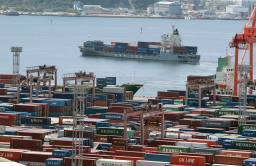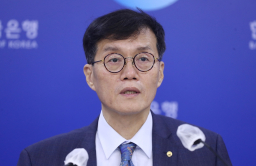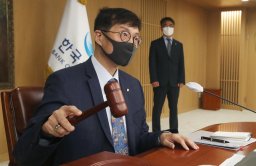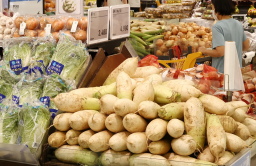-
KOSPI 2577.27 -2.21 -0.09%
-
KOSDAQ 722.52 -7.07 -0.97%
-
KOSPI200 341.49 +0.02 +0.01%
-
USD/KRW 1396 -2.00 0.14%
Korea inflation slows, but BOK may still hike interest rates
Economy
Korea inflation slows, but BOK may still hike interest rates
Won extends losses to weakest level since 2008-09 global financial crisis, raising import prices, on economic downturn concerns
By
Sep 02, 2022 (Gmt+09:00)
2
Min read
News+
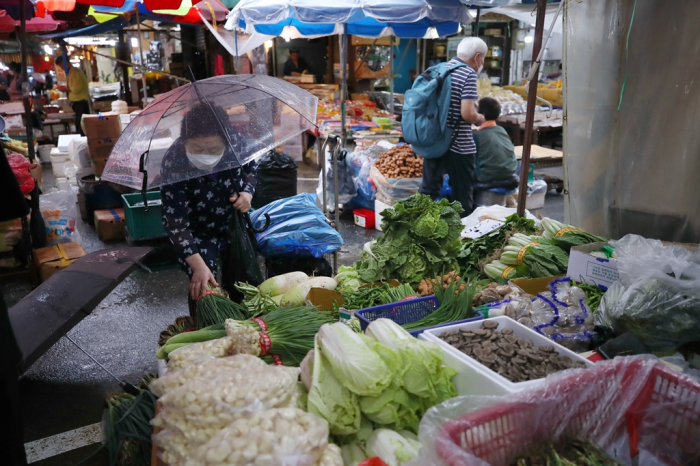
South Korea’s headline inflation eased in August for the first time in seven months on a slower rise in oil prices, but the central bank is still expected to raise interest rates further as inflationary pressure remained strong.
The South Korean won hit the weakest level since the 2008-09 global financial crisis, adding to concerns that Asia’s fourth-largest economy will continue to suffer from rampant inflation.
Consumer prices increased 5.7% last month from a year earlier, lower than a 24-year high of 6.3% in July, government data showed on Friday. It was the first time that headline inflation has slowed from the previous month since January.
That came as petroleum prices rose 19.7% on-year, slower than a 35.1% increase in July, as global crude prices slid on weaker demand. The prices of oil products fell 10% from the previous month, the largest monthly drop since March 1998, resulting in a 0.1% decline in overall consumer prices for the first time since November 2020.
But annual core inflation, which excludes volatile food and energy prices, accelerated to 4%, the highest since February 2009, suggesting the country has remained vulnerable to inflationary pressure.
“Consumer inflation is expected to remain high at around 5-6% for a considerable period of time,” said Bank of Korea Deputy Governor Lee Hwan-seok after the data, indicating policymakers are still on alert against inflation.
Late last month, Bank of Korea Governor Rhee Chang-yong told The Korea Economic Daily that the central bank plans to continue interest rate hikes until inflation falls to around the 2% target.
The Bank of Korea last week delivered its fourth interest rate hike in a row for the first time in its history, increasing its benchmark policy rate by 25 basis points to 2.50%.
FALLING WON
The inflationary pressure is unlikely to ease as the won has extended its weakness, ramping up import prices, on growing signs of an economic slowdown amid aggressive US monetary policy tightening.
The South Korean currency closed the local foreign exchange market down 0.6% at 1,362.6 per dollar, the weakest domestic finish since April 1, 2009. The local unit has been the worst performer among emerging Asian currencies with a near 13% loss against the greenback so far this year.
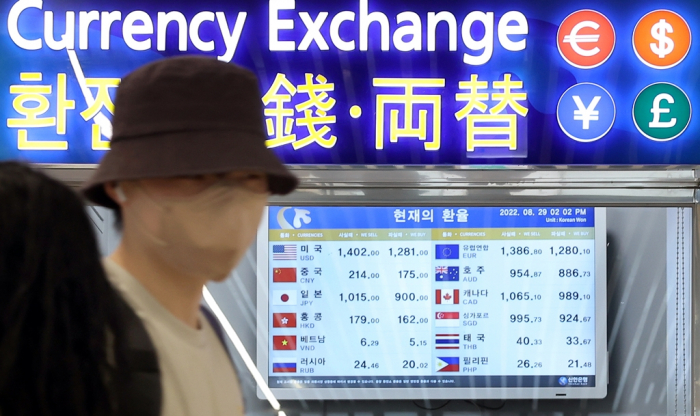
The country logged a record monthly trade deficit in August with the longest spree of shortfalls in more than 14 years, while domestic consumption, production and investment all declined in July.
“A rising trade deficit will result in rising dollar demand,” said Moon Hong-cheol, an economist at DB Financial Investment. “The won came under further pressure from worries about an economic slowdown due to sluggish exports.”
Meanwhile, US Federal Reserve policymakers have maintained their hawkish stance.
Cleveland Federal Reserve President Loretta Mester said Wednesday that she sees benchmark rates rising above 4% in the coming months.
Write to Eui-Jin Jeong and Mi-Hyun Jo at justin@hankyung.com
Jongwoo Cheon edited this article.
More To Read
-
Sep 01, 2022 (Gmt+09:00)
-
Aug 29, 2022 (Gmt+09:00)
-
Aug 25, 2022 (Gmt+09:00)
-
Aug 02, 2022 (Gmt+09:00)


